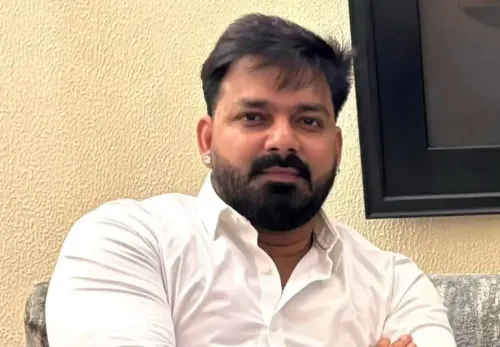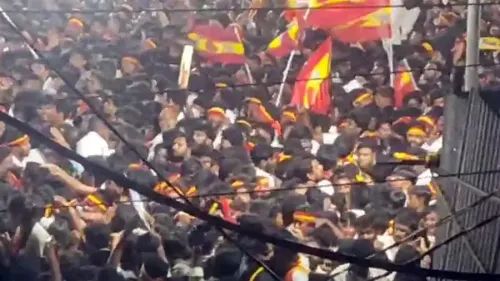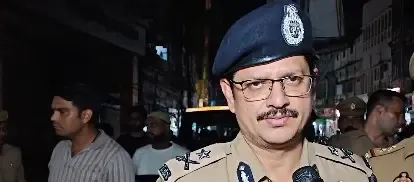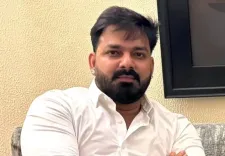What is the Latest on the ED Probe Against Bengal Minister in the Job-for-Cash Case?
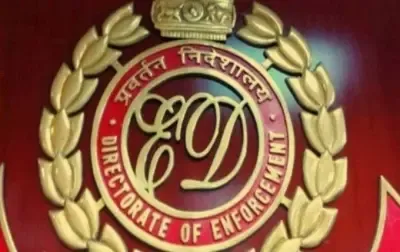
Synopsis
Key Takeaways
- ED faces hurdles in prosecuting Sinha.
- Charge sheet awaits approval from Raj Bhavan.
- Sinha has a history of evading ED appearances.
- Raids have revealed substantial cash at Sinha's residence.
- Implications for governance and accountability are significant.
Kolkata, Aug 12 (NationPress) The Enforcement Directorate (ED) has encountered a significant obstacle in its efforts to hold West Bengal Minister Chandranath Sinha accountable for alleged misconduct in the hiring of primary teachers within government schools. This setback comes after the agency could not obtain the required approval for the charge sheet from Raj Bhavan.
On August 6, the ED submitted a charge sheet against Sinha in a special court dealing with the Prevention of Money Laundering Act (PMLA) in Kolkata.
During a court session on Tuesday, the ED reported that it has yet to receive the essential documents from Raj Bhavan for the charge sheet's approval.
Consequently, although the charge sheet has been presented to the court, it was not accepted. This situation hampers the ED from advancing the case against the state minister.
The testimony recording for the recruitment case was scheduled for Tuesday but could not take place due to the court's rejection of the charge sheet. The next hearing is now set for August 20.
Sinha becomes the second minister from the Bengal government to face a charge sheet from the ED in this matter, following former West Bengal Education Minister and Trinamool Congress Secretary General Partha Chatterjee.
He represents Bolpur Assembly constituency in Birbhum district and has previously dodged appearances before ED officials.
On August 7, Sinha unexpectedly visited the ED office, but it remains unclear whether he was interrogated.
On July 31, the ED had requested property documents from Sinha, including details of all his and his family's movable and immovable assets.
However, Sinha did not show up at the ED's office in Kolkata's Salt Lake area, reportedly asking for more time.
The ED initially identified Sinha through a diary belonging to a middleman and now-suspended Trinamool Congress leader Kuntal Ghosh, who was subsequently arrested by federal agents.
In March of the previous year, the ED conducted a raid at Sinha's residence in Bolpur, leading to the seizure of Rs 41 lakh in cash and a mobile phone.
Sinha has notable ties to Trinamool Congress heavyweight and former Birbhum district president, Anubrata Mondal.


